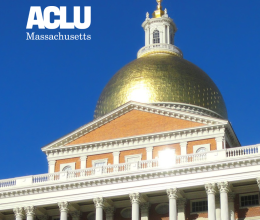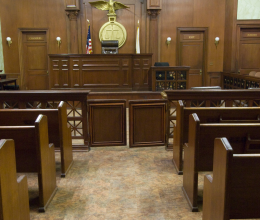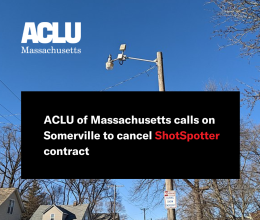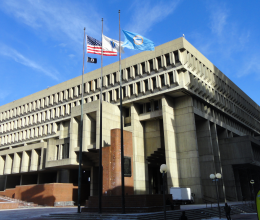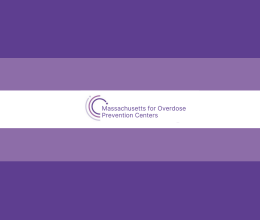
On behalf of 3 petitioners who were wrongfully convicted of state drug charges, the ACLU of Massachusetts, the national ACLU, the state public defender agency, and the law firm Fick & Marx LLP urged the Supreme Judicial Court on Friday to vacate 24,000 unresolved cases in which people were convicted based on tainted evidence arising from the misconduct of former state drug lab chemist Annie Dookhan. Dookhan was allowed to falsify and fabricate evidence for years, causing tens of thousands of people to be convicted of drug offenses based on tainted evidence and fraud.
“The state punished 24,000 people based on tainted evidence, and they have all been living with the consequences. These defendants would have to wait decades for justice through case-by-case litigation,” said Matthew Segal, legal director of the ACLU of Massachusetts. “Because there are not enough resources to relitigate these cases one by one, there will be a one-size-fits all outcome of some kind: either these 24,000 convictions obtained with egregious government misconduct will be vacated by the Supreme Judicial Court, or the vast majority of them will never be challenged.”
District Attorneys have for years argued for retrying these cases individually, despite factors rendering such an approach impossible.
Even with a significant infusion of state money, public defenders would need 48 years to assign attorneys to all 24,000 defendants, according to the brief submitted Friday by the ACLU and the public defender agency (the Committee for Public Counsel Services). In most of these cases---over 60%---the drug charge does not involve distribution. Worse still, a second drug lab scandal, in which chemist Sonja Farak consumed drugs from a criminal drug lab for eight years, may have tainted an additional 18,000 cases, further increasing the burdens on the defense bar. From 2004 to 2010, when both Dookhan and Farak were employed as chemists, their misconduct tainted one in four drug cases in Massachusetts.
Adequate legal representation will be particularly critical in the Farak cases, where defense lawyers may be required to raise issues of prosecutorial misconduct by the Office of the Attorney General.
“Whatever its explanation might be, the [Office of the Attorney General] made false statements about the scope of Farak’s misconduct, and about the evidence in its possession,” according to the brief. “Accordingly, in many cases it might be impossible to responsibly represent a Farak defendant without asserting prosecutorial misconduct.”
Last but not least, a misleading notice sent on September 1, 2016 to perhaps 20,000 Dookhan defendants by the District Attorneys removed all hope of fairly informing Dookhan defendants about case-by-case litigation. Among other things, the notice ominously warned that any defendant whose conviction is vacated will have an active criminal case, suggesting the prosecutors have already decided not to dismiss any cases. Moreover, the notice was so poorly translated into Spanish that it could not be understood by people who speak only Spanish.
“The Notice is not a serious effort to ensure that wrongful convictions will be addressed through case-by-case litigation,” said ACLU of Massachusetts staff attorney Adriana Lafaille. “Anyone who receives it could be misled, confused, or both.”
Defendants face grave collateral consequences from the fraudulent convictions, including lost drivers’ licenses, housing, student loans, and jobs. Others were wrongfully deported and still others remain wrongfully imprisoned based on Dookhan-related predicate charges.
Although these injustices are compounded by the fact that many of the Dookhan defendants are poor, Assistant District Attorney Robert Kidd filed an affidavit in the case suggesting that the Court could safely ignore all 15,000 cases in which the Dookhan defendant’s only drug crime was possession, noting that such people are “unlikely … [to] be interested in challenging their convictions” because they are preoccupied by the struggle of being “poor,” of dealing with “addiction and mental illness,” and of just trying “to survive in our society.”
“The fundamental requirement of due process is the opportunity to be heard at a meaningful time and in a meaningful manner, which cannot happen so long as Dookhan defendants are required to bring and litigate individual cases,” said Fick & Marx attorney Daniel Marx.
“There is only one way to vindicate the due process rights of defendants and to restore the integrity of the justice system,” said Marx. “These tainted drug convictions should be vacated.”
A hearing on the case is set for early November.
read more about bridgeman v. district attorney of suffolk county here
